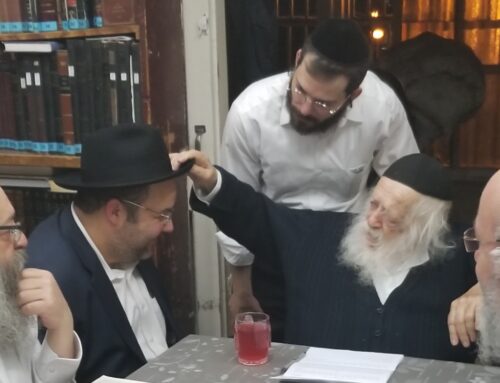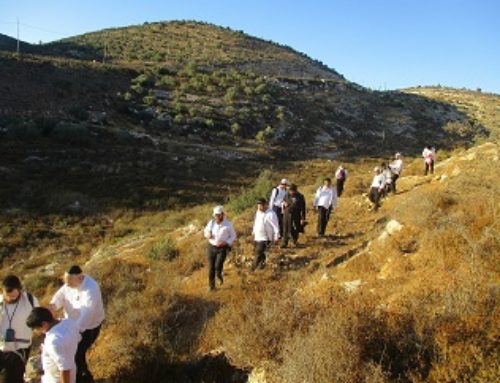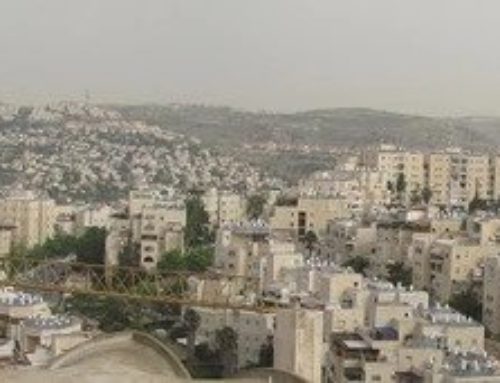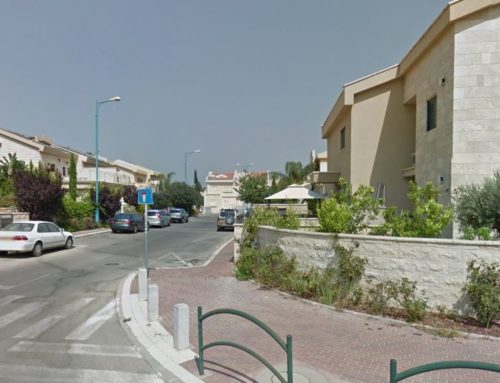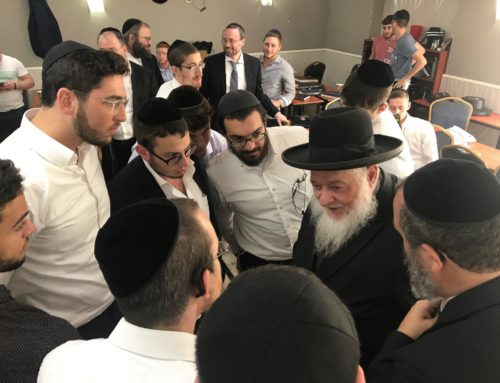Not Just A Spectator
Yedidya B., Yerushalayim
B”H, I am happily raising my family in Yerushalayim, making a living running a business I started, and learning Torah as well. Honestly, though, all of this is not something I take for granted.
I grew up in a regular American yeshivish home in a frum community in New Jersey. I am fortunate to have ended up living in Eretz Yisroel, but from a class of fifteen kids in cheider, I’m the only one so far. One of the kids in my class unfortunately ended up marrying a shiksa, R”l. I am very troubled by the thought that the same percentage of the American chinuch system’s complete failures—at least concerning my class—is also the same percentage of those who have succeeded in coming to live in Eretz Yisroel. I am still contemplating why this is so.
Anyone who has gone through the chinuch system has been exposed to Torah, Shas and poskim. Therefore, the centrality of Eretz Yisroel must surely be so very clear to them. How can they not want to live in Eretz Yisroel? People are busy with chumros in all sorts of things, so why is living in Eretz Yisroel left out—even if it might not be an absolute chovah?
I came to Eretz Yisroel in 2003 at the age of nineteen. I liked the yeshivos in America, but the love of Eretz Yisroel brought me here. I started out in a small yeshivah in Yerushalayim catering to American bochurim. I quickly realized that if I really wanted to stay in Eretz Yisroel, it would be best to integrate into the Israeli Chareidi system and culture, so I decided to make the jump into an Israeli yeshivah.
I attended the famous Ponevezh Yeshivah in Bnei Brak for a year and a half. When I first arrived there, I only knew some basic “siddur” Hebrew, and I had to pick up the language quickly; basically overnight. It was the best ulpan [school for learning the Hebrew language] and merkaz klitah (absorption center) into the Israeli Chareidi world. I had the most amazing time of my life in Bnei Brak, with exposure to the rich Torah center and its special personalities.
Now living in Yerushalayim, I am part and parcel of the Israeli Chareidi community with all of its pros and cons. (Of course, what constitutes a pro or a con is a matter of personal opinion and a question of priorities.) For example, I would be happy if my kids knew a bit more math, but we made a decision that it is more important to be part of the Chareidi community and not feel different. My kids are well integrated, so much so that they don’t feel like “American” kids at all. Proof is, my daughter did not elect to be placed with the dovrot [English speakers] group.
Here in Eretz Yisroel the Torah becomes alive. When discussing the Me’aras HaMachpelah from the weekly parashah, it isn’t something we just read about—we were actually in Chevron recently, looking at what was the sadeh that Avrohom Avinu bought. For us in Yerushalayim, the absence of a sheep for the korban Pesach is glaring. The Beis HaMikdash is a real concept, waiting to be rebuilt on the Har HaBayis behind the Kosel HaMa’aravi.
There was a time in recent history when Eretz Yisroel needed Yidden to come here to make it happen. Today we are at a point where much has already been built up here, both physically and in a Torah sense. The center of the Torah world—including prestigious yeshivos, respected and widely recognized batei din, rabbonim of world-renowned stature—is now here in Eretz Yisroel. Despite that, Eretz Yisroel still needs you; the more frum Americans living here, the greater our influence would be on what’s happening here. Realize on one hand that there is great opportunity here, and on the other hand, it’s you, your children and family who are missing out by not being here. It’s your choice to jump on the train and be a part of history in-the-making, or just to watch it as an outside spectator. As my ninth-grade rebbi would say, “You can make a cow thirsty and bring it to the freshwater lake, but you cannot make it drink.”
I have come across many older people visiting here—some who come as often as three times a year, many who even own apartments here. I often hear them saying how they would love to retire here and how lucky I am to live here. The reason many of them are not staying to live here is because they have children and grandchildren settled back in the U.S. If the chinuch for the value of living in Eretz Yisroel doesn’t have a big enough impact on the younger generation, they won’t make the move. Not only will they miss out, but the older generation might just find themselves stuck there in America, dreams unfulfilled.
On a practical note for those who do want to come, I recommend first finding a suitable community to be a part of, carefully considering the pros and cons (especially including the school system) you are willing to deal with. This doesn’t mean you have to give up your identity. Contrary to popular belief, there is a tremendous amount of diversity within the frum world here. Just stick to your community’s guidelines though, and don’t count on changing the system. For the kids, it’s especially important that they not remain outsiders.
So Many Goyim!
My father is descended from the Zoref-Salomon family who were very involved in yishuv Eretz Yisroel. Our ancestor R’ Shlomo Zalman Zoref was instrumental in getting permission for Ashkenazi Jews to live in Yerushalayim almost two hundred years ago. To his signature on a document now on display in the Churva shul’s lobby, he appended “ish Yerushalayim” (man of Yerushalayim).
The connection to Eretz Yisroel must be in our genes. On a recent trip to America, I was sure my ten-year-old daughter would have a good time. But it didn’t take long for her to want to go back home, as, in her words, “It’s freezing here and there are so many goyim!”
This article is part of our Haaretz Hatovah series featuring Yidden living in, settling, and building up Eretz Yisroel. For more information please contact us at [email protected] or visit naavakodesh.org/haaretz-hatovah
Reprinted with permission from Yated Ne’eman


